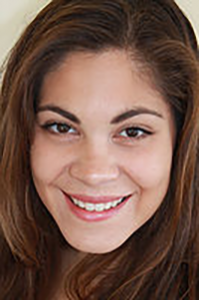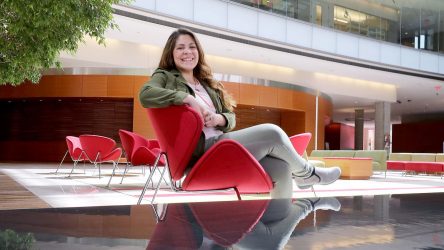
Ginger Contreras is the executive director of the Illuminating Discovery Hub at the Wisconsin Institute for Discovery. She will participate in a panel discussion at the Wisconsin Science Festival titled Who Owns Science? Representation, Inclusion, Culture and the Scientific Enterprise on Wednesday, October 17 at 2:00 pm in the H.F. DeLuca Forum at the Discovery Building on the University of Wisconsin–Madison campus.
What was your science learning experience like? Did you like it? Did you thrive in the science classroom? For many, the science learning experience involves text books, lab coats, and a teacher in the front of the classroom while students are organized neatly in rows of desks or standing tables. This is the typical western teaching structure. And although the western teaching style has value, it is not one size fits all, nor does it consider non-white, non-dominant cultures and legacies.
Cultural, language, and learning perspectives directly relate to the type of learning structure in which people are likely to thrive. It’s easy for learners from non-western cultural, language, or learning perspectives to get lost in western teaching structures. When they are able to succeed, it often requires either walking two worlds of learning and cultural practice or sacrificing one world of thought.
Diversity is a key factor in innovation. Diversity of thought, cultures, and languages can contribute to and advance innovative inquiry in science, technology, engineering, and math (STEM). At the Wisconsin Institute for Discovery, our teams span many countries of origin, STEM fields, worldviews, genders, languages, and cultural identities — that diversity makes us stronger. We collaborate to push the boundaries of discovery and work to forward the public good for equitable and accessible science communication that empowers communities to be science stakeholders with us. Through that lens, our goal is to engage the public as a whole to be invested in STEM.
As a multiracial learner, I was handed down the matrilineal healing and storytelling practices of my first nation grandmother and our ancestors. My learning style was not embraced nor accepted by western teaching structure. The western technique for teaching overshadowed the big picture: why STEM topics were important and how they related to me. In order to succeed, I learned how to incorporate my cultural learning, art, and performance skills as tools for finding my place as a STEM stakeholder. This science-art fusion led to my interest and pursuit in combining the arts and sciences, leading me to my current position as the executive director of the Illuminating Discovery Hub. In this role, I work to change how we tell the story of science through programs like Science to Street Art and Science to Script.
At the upcoming Wisconsin Science Festival, I will be joining experts from various STEM fields to continue this conversation and explore the concept of “Who Owns Science.”
This panel topic is much-needed and a timely exploration of how we can create social change around STEM education, inclusion, and accessibility that expands what it means to be a science stakeholder, and who can be a scientist.
Panelists:
Rabiah Mayas, Northwestern University. (Moderator)
Cheryl Bauer-Armstrong, UW-Madison
Ginger Ann Contreras, Wisconsin Institute for Discovery
Lori Lemieux, Bad River Education Department
Dorothy Lsoto, Nelson Institute
Michelle Allness, DNR
Reynaldo Morales, UW-Madison School of Education


You must be logged in to post a comment.